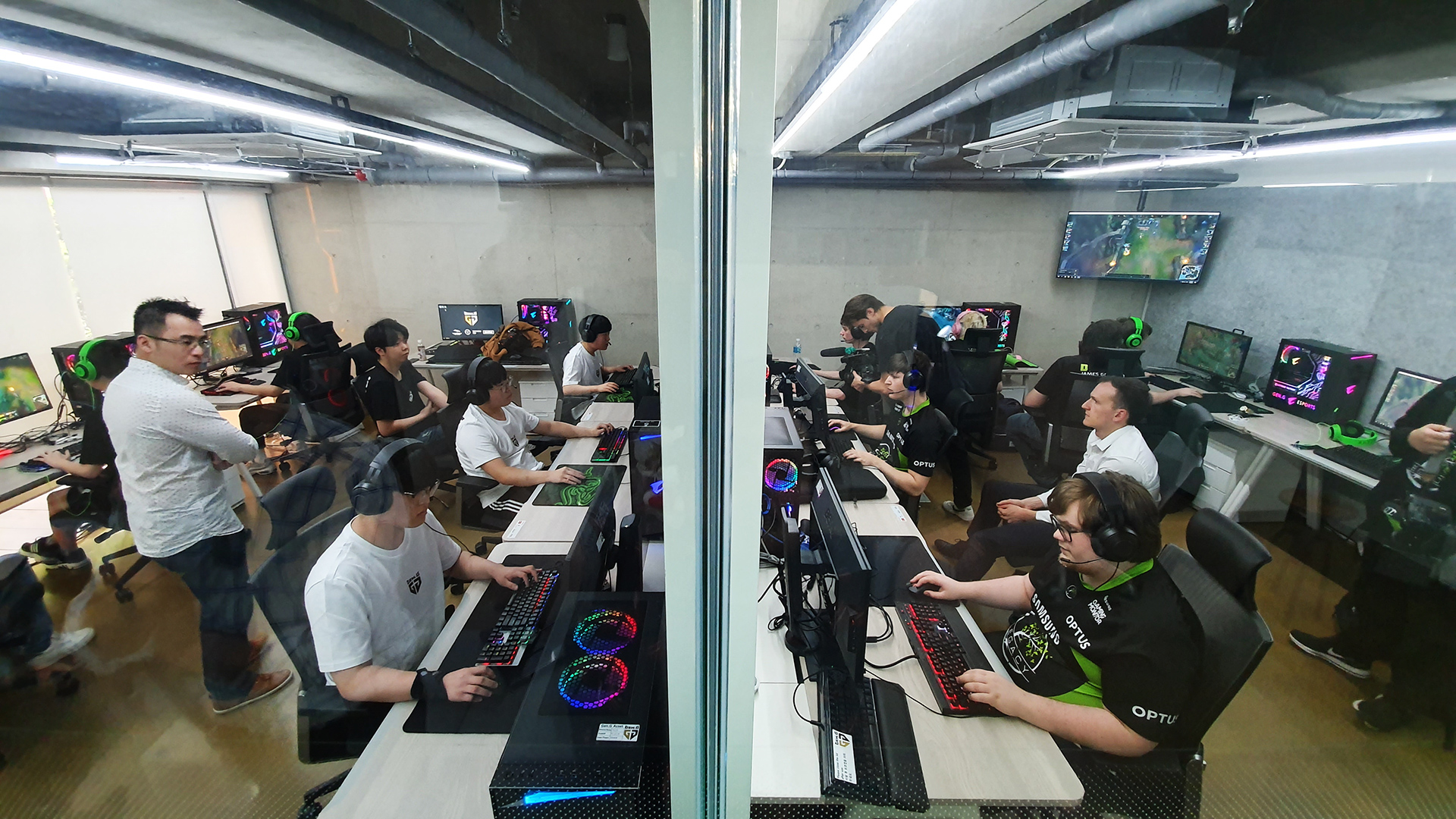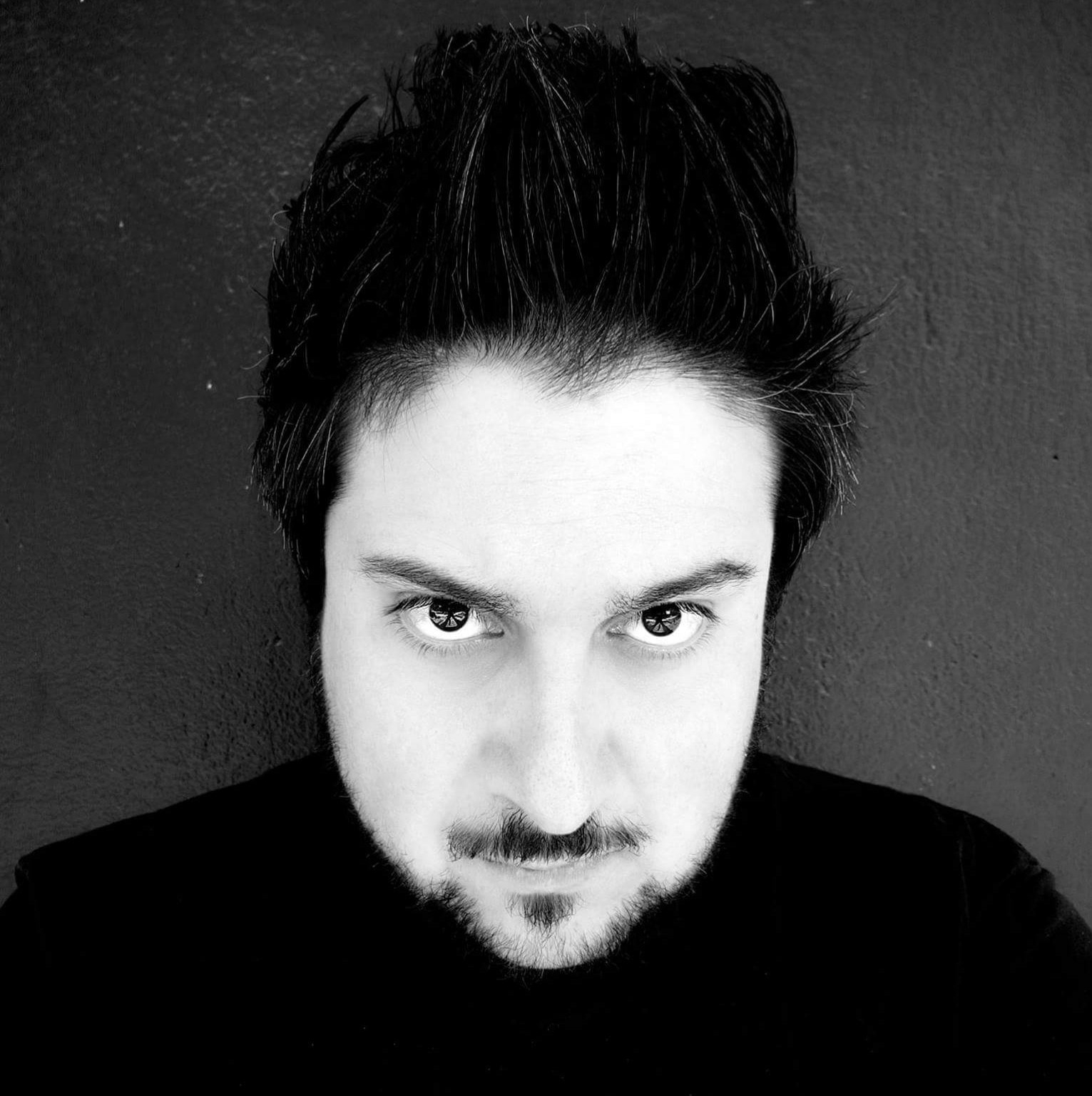This leading esports exec says Aussie players must ‘lean into Asia’ to make it big
What Australia needs to do to level up its esports scene

Sign up for breaking news, reviews, opinion, top tech deals, and more.
You are now subscribed
Your newsletter sign-up was successful
Esports is the fastest-growing sport in the world in terms of overall viewers, but while Australia has made some big strides in the increasingly popular pro-gaming scene, it's safe to say that it's still chasing true mainstream acceptance Down Under.
One of Australia's most respected and established pro-gaming organisations is Legacy Esports, which has routinely competed in tournaments at an international level since it was first formed in 2014 – back then, the team was known as Avant Garde Ascension.
In 2017, Legacy made history when it was acquired by the AFL's Adelaide Crows, becoming the first Aussie esports team to score such a high-level partnership. Legacy has since picked up major sponsors like Samsung and Optus and further cemented its reputation as one of the most formidable forces to be reckoned with in the Oceanic Pro League (OPL).
Over the years, Legacy has earned a dedicated fanbase – one which has supported the organisation through numerous tournaments that have played out on an international stage, and competed across a range of popular games including Rocket League, StarCraft II and League of Legends.
In an effort to find out how Aussie pro gaming compares to that of the sport's most established market, we recently accompanied Legacy's League of Legends team on a trip to Seoul, South Korea to visit the headquarters of the world-renowned Gen.G Esports organisation, where the two teams faced off in a friendly match. Here's how it went down.
Esports on another level

Gen.G's HQ in Seoul is an formidable seven-floor concrete facility, and upon arrival it's clear that the boys from Legacy are a little taken aback by the sheer scope of the Koreans' approach to professional gaming – it's a far cry from the Aussie team's more discrete office in Sydney.
Our hosts waste no time, however, and we're immediately conscripted into a multi-level tour of the facility. On each floor, we come across room after room of gaming PCs, each boasting top-of-the-line specs – and a requisite amount of multi-coloured RGB lighting and, of course, Gen.G branding. A few of these rooms are adorned with a prominent 'Combat Room' label – but more on that later.
Sign up for breaking news, reviews, opinion, top tech deals, and more.
Eventually, we enter a room containing a wall filled with championship trophies for a variety of games. In the same room, we also find a collection of very expensive single-malt whiskies that, despite being provided for the players, remain completely untouched. Clearly, Gen.G's players are more interested in winning than letting their hair down.
Best of the best

Once the usual introductions and presentations are out of the way, the boys from Legacy Esports are given the chance to sit down with Gen.G's chief operations officer, Arnold Hur, who proceeds to impart some knowledge on what it's like to compete at the highest level in professional gaming.
While these words of wisdom were strictly for players ears only, we did sit down with Hur a little later to discuss Gen.G's goals, what it's like to run a global esports organisation, and the world of esports in general.
“One of our greatest missions is really to try and bridge the gap between East and West, so what we believe to be the largest esports markets in the world, and really create a new brand that can be for esports all over the world,” says Hur.
One way of doing this involves picking the right talent to represent your esports organisation, something that Hur says involves a number of variables. "It depends on every esport, so the ones that are a little bit more developed and further along, we’ve now created a more rigorous process in picking the best in the market. We’re kind of benchmarking how professional sports does it."
"We’ve been very lucky where we have very senior traditional sports executives that have now joined and helped us really create a new system that’s a little more professional, so a great example is we are the first team in Korea with an actual scouting team for League of Legends, and the same for Overwatch."

So how does the esports scouting process compare to that of traditional sports? "We’ve even consulted with scouts from the Lakers [NBA team], scouts from the MLB, scouts from the NFL, so we can see and benchmark what works for them and what doesn’t work, and kind of take best practices knowing that you can’t copy-paste it."
It probably won't come as a surprise that this kind of practice is uncommon in Australia, where professional gaming is still a relatively new concept.
So what does Australia need to do to take its esports scene to the next level? Hur briefly pauses, before explaining that "Australia cannot follow the North American route of importing talent and trying to run it that way." He believes that, despite stuff competition, Asia is a more natural home for Aussie teams. "The more that Australia can lean into more competition with Asia... at first it's going to be rough, right? Especially in certain esports where Asia excels and Australia is still beginning."
"The biggest impact that we've seen is more game time with high level talent, which right now exists in China and Korea for certain esports. For other esports, it's in Europe," he continued. "So basically, figuring out where the closest market with the highest level of competition is, and then going after that market, bootcamping in that market, learning how they're using their systems, how they're playing, and then really, really getting that competition in... I think that's the most important thing that Australia can do," Hur explained.
And on this trip, Legacy Esports was there to do just that.
Following Hur's words of wisdom, Legacy's team members met with Gen.G's renowned League of Legends team and got the chance to ask Gen.G's players some incredibly specific questions about their LoL strategies – so specific, in fact, that this writer didn't understand them at all, or Gen.G's translated responses. We assume, however, that Legacy did understand them, and would be putting them into practice during their upcoming skirmishes.
Let slip the dogs of (friendly) war

With both teams having had the chance to sit down and grill each other, the time for talk was officially over. Now, we head back to the aforementioned Combat Rooms to witness an East vs West battle to rival that of classic Eric Roberts martial arts film, Best of the Best – hopefully, with less crying.
After a few minutes of setting up a networked game, players from both teams are ready for battle. The two teams are situated in adjacent rooms, and while they cannot see physically see each other, their opponents' presence is definitely felt. Of course, there's also a dedicated screen in the corner of Legacy's room that allows us to follow the action.
The goal of League of Legends is relatively simple, but requires killer instincts and an incredible amount of skill in order to master. Players on each team must work together in order to destroy the opposing team's towers, which they must do in order to reach their enemy's main base and destroy it.
Each member of the team controls a powerful and unique character and has an assigned role which they must stick to in order to achieve victory. In essence, it's a lot like any other team-based competitive sport, such as baseball or basketball.

The first friendly match between Legacy and Gen.G starts in a fairly straightforward manner, with both teams sticking to their usual strategies. In each room, the players are supported by coaches and managers who watch over the match with deadly serious expressions on their faces. Think Phil Jackson in the middle of the NBA playoffs.
At around the 10 minute mark, the Korean team gains an advantage over the Aussies, and the energy in Legacy's room immediately becomes more heightened. Now, the Aussies are taking a pummelling, and communication between each team member is laden with F-bombs.
After roughly 20 minutes, the match is over, and Gen.G Esports is victorious. Mercifully, this is only the first in a handful of planned matches, so the Australians still have a chance to redeem themselves.
Having taken a beating in the first match, Legacy regroups and begins discussing its next plan of attack. Impressively, each member of the team seems to know exactly where they fell short and what they should do to remedy this in the next battle. Players are able to skip around through a replay of the previous match, pinpointing exactly when and where the opposition secured the win. Now, it's time for round two.
Having completely changed its strategy, this time Legacy is able to take Gen.G by surprise, delivering a full-scale assault that forces the Korean team to come up with a new plan of its own. Unlike the first match, the second battle sees each team take (and lose) the lead on numerous occasions. However, after roughly 40 minutes of intense battle, the Aussies emerge victorious, proving that a thoughtful strategy is the best weapon to have in your arsenal.
A learning experience

So what did the Legacy Esports team take away from their visit to Gen.G headquarters and the friendly matches that took place therein?
"It was clear just by playing against them that they're on another level than myself and Mark [Lewis] in terms of communication," said Legacy's William "Crayzee" Dobie, who plays in a support position for the team. "Whenever they were doing something, they were doing it together and doing it instantly, so I didn't even need to hear that because I know they're just a step above and that's something I want to work towards."
For Tim "Carbon" Wendell, head of Legacy Esports, the experience was both eye-opening and rejuvenating. "Experiencing the HQ at Gen.G really renewed my love of esports and for managing esports teams," explained Wendell. He continued, "seeing what's possible is inspiring and super reinvigorating for me, just knowing that somewhere down the line, potentially I could be doing the same thing that they're doing and provide the same kind of stuff that Gen.G provides their players, so I'm really keen to get back home and get back to work."
Stephen Lambrechts travelled to Seoul courtesy of Samsung Australia.

Stephen primarily covers phones and entertainment for TechRadar's Australian team, and has written professionally across the categories of tech, film, television and gaming in both print and online for over a decade. He's obsessed with smartphones, televisions, consoles and gaming PCs, and has a deep-seated desire to consume all forms of media at the highest quality possible.
He's also likely to talk a person’s ear off at the mere mention of Android, cats, retro sneaker releases, travelling and physical media, such as vinyl and boutique Blu-ray releases. Right now, he's most excited about QD-OLED technology, The Batman and Hellblade 2: Senua's Saga.